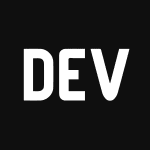We all know that staying relevant in the ever-changing tech landscape is essential. So, here's the question: Do you think pursuing continuing education or specialized certifications is necessary to enhance your skills and boost your marketability?
Share your thoughts and experiences in this discussion! Let's explore the value of ongoing learning in our coding journey and uncover whether it's worth the investment.
Follow the DEVteam for more discussions and online camaraderie!




Top comments (6)
Absolutely!
In my view, pursuing continuing education and specialized certifications can indeed provide a significant boost to one's skills and marketability in the tech industry. This sector is renowned for its rapid, unceasing evolution. Every passing moment can bring new languages, tools, platforms, and technologies into the spotlight, all of which may become critical to know for various projects or job roles.
To maintain a competitive edge, it's crucial to stay updated, and this is where ongoing learning and certifications come into play. They not only equip us with the latest knowledge and technical proficiency but also demonstrate to employers and colleagues that we possess a strong commitment to our profession. This level of dedication and initiative is often highly valued and can set us apart in the job market.
Furthermore, it's not just about learning new things, it's about deepening our understanding of existing technologies as well. Take JavaScript, for example. Even if it has been around for decades, the language continues to evolve, with new frameworks and libraries like React, Vue, and Angular changing how we use it.
However, let's not overlook the practical aspect. In some cases, the return on investment may not always seem immediately apparent, especially considering the potential cost of some courses and certifications. It's crucial to approach this strategically, targeting those certifications and learning opportunities that align closely with your career goals and desired skill sets.
It's also worth noting that formal education and certifications are just part of the story. Self-learning, exploring open source projects, and practical coding experiences (like participating in hackathons or contributing to real-world projects) can be equally beneficial in expanding your skills and demonstrating your abilities.
In essence, a blend of both – formal certifications and practical, self-guided learning experiences – seems to be a balanced way forward. It gives you the structured understanding of tech concepts while also providing the flexibility to explore and innovate beyond those constraints.
In the end, the learning path you choose should be guided by your personal interests, professional goals, and the specific demands of your desired career path in tech. Stay curious, keep learning, and remember that in the world of technology, standing still is the fastest way to move backward.
For me, I thrive in structured learning environments for skills that I want to develop, because sometimes the self-starting of it all can get a bit jumbled. I find it super helpful to have projects and guided learning plans to go along with. I don't think traditional schooling environments help everyone thrive sometimes and are not NEARLY as financially accessible as I would like to see them. With that being said, if you have the privilege to and your brain works well in that environment, I think trying it out is a great idea.
for me yes, as a person from Iraq, we have limited resources to most workshops and bootcamps to improve the beginning of our journey with the tech industry, I got huge advantages of completing a bachelor's degree here to start going with the basic academic details that may most of the courses do not mention.
Same as my second bachelor's from Germany to see how academically they prepare their students and actually it's helping me a lot to understand how the low level side of critical thinking is being built.
I see it helped my case of being a good developer in my career.
In this ever changing world of tech, I think continuous learning is the only constant, well learning and applying what you learn. I think a good developer is someone who has the capability to grasp new concepts and still knowing the basics.
As a developer who has non traditional background, I thought a lot about continued education to sharpen my technical skills and soft skills, I searched around to fill up the gap of computer science, for example, this is the 3 must read computer science books for developers coming from non traditional background in my opinion, it did help, but there are so much knowledge out there, I think it is important to have a clear picture of what you need to learn and what commitment you can make before diving into the sea of knowledge.
AlwaysKeepLearning
But for the majority is better to do that outside of traditional Academia.